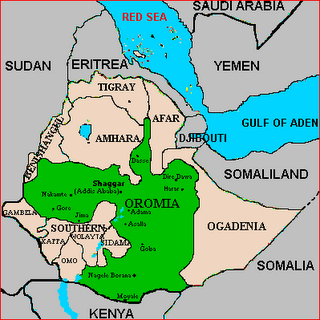
School, Language and the Oromo
K(aka CC), my dear teacher friend, this is a really good question. We are STILL pondering its answer. We have been paying careful attention to how adoptive parents we know have chosen to educate their internationally adopted child. Obviously, neither Pat nor I speak fluent Amharic (the national language of Ethiopia) AND there is the possibility that H will speak Oromo (the native language to her specific group of people within Ethiopia). As an FYI, this is a brief introduction to the Oromo region of Ethiopia:
The Oromo make up a significant portion of the population occupying the Horn of Africa. In the Ethiopian Empire alone, Oromo constitute about 30 million of the 55 million inhabitants of the Ethiopian Empire. In fact, Oromo is one of the most numerous nations in Africa which enjoys a homogeneous culture and shares a common language, history and descent and once shared common political, religious and legal institutions. During their long history, the Oromo developed their own cultural, social and political system known as the Gadaa system. It is a uniquely democratic political and social institution that governed the life of every individual in the society from birth to death.
Ecologically and agriculturally Oromia (Oromo country) is the richest region in the Horn of Africa. Livestock products, coffee, oil seeds, spices, mineral resources and wild life are all diverse and abundant. In spite of all these advantages, a century of colonisation by Abyssinia (Ethiopia), a backward nation itself, has meant that the Oromo people have endured a stagnant existence where ignorance and famine have been coupled with ruthless oppression, subjugation, exploitation and above all, extermination. Thus for the last one hundred years under the Ethiopian rule, the Oromo have gained very little, if anything, in the way of political, social and economic progress.
So, although H has learned some English at our agency's orphanage and possibly some prior to that, the truth is we just won't know the extent of her abilities until she comes home. With that in mind, we are preparing about 10 different contingency plans (who says the Army didn't teach me something?!) and waiting to see what her needs are when she arrives.
While it is true that some adoptive families homeschool, others choose public or private school (either in an ELL capacity or even in a regular ed setting) and their children do fine. For us, we are *planning* to have her assessed in our public school district, who offers a very wide variety of services-from total multi-age English immersion to a more traditional 30 min/day pull-out program-and see what they have to offer us. Ideally, we'd like to have her attend our parish school with the Boy and B, where the other families with Ethiopian children attend; but, we want to make sure we give her the best head start to help her be successful. We have considered doing a combination half-day parish school/half-day homeschool to allow her to fit in with her brother and sister, be around English speaking peers, but also work on her adjustment to America and our family and learn the language, to some extent, the way our birth children did-by growing up around it.
In the end, we just won't know what we'll do until we do it, I guess. No matter what, I'll be taking this class, it seems for a long, long time: Letting Go of Control 101 (yes, I am still in the entry level class).
2 comments:
I am sure that Rooney & co. are wondering what branch of the family tree I fell off of on a regular basis. As for the travel, Lizardo is still planning to go unless there is a major issue with the dates (whenever we finally get them!) The boy was about 16 mos old when we moved back to the US. You should totally join the blogosphere bandwagon. It reminds me of passing/reading notes from friends during typing class--or at least that's what I hear...
Advice is an easy dish to serve, but somehow very hard to choke down. Thanks for the reminder.
Post a Comment